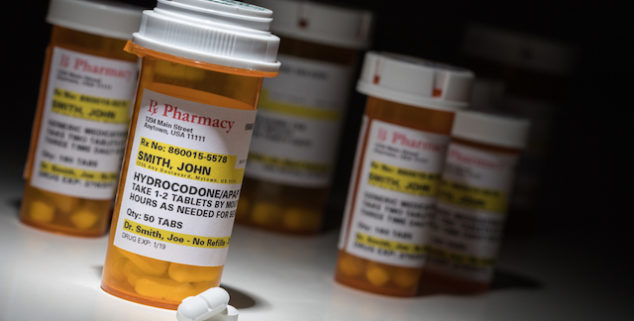Opinion
Lawmakers: Make fixing broken drug program a top priority
 Prescription medication available through hospitals and pharmacies. (Photo: Andy Dean Photography, via Shutterstock)
Prescription medication available through hospitals and pharmacies. (Photo: Andy Dean Photography, via Shutterstock)California is committed to the health of its residents. Nearly a quarter of Gov. Newsom’s state budget for 2022-2023 is allocated to health care expenditures.
The Legislature has rightly signaled that health care will again be a strong policy priority, as they consider proposals to address ongoing COVID-19 recovery, onerous health insurance practices, treatment choice, and the prices patients pay at the pharmacy counter.
Amid their focus on improving health care access and affordability, however, policymakers should also reexamine existing programs that are failing to properly protect vulnerable California communities.
No oversight exists requiring hospitals and clinics to pass savings on to patients or to provide any transparency on where the drug discounts are going.
The federal 340B Drug Pricing Program was designed to expand access to affordable, discounted prescription medications for low-income and uninsured patients. Congress created 340B to help Medi-Cal patients and other vulnerable groups, but a growing body of evidence suggests that this safety net is failing them.
Hospitals and clinics qualify for 340B by serving a pre-determined percentage of vulnerable patients. In California, that amounts to upwards of 17 million people. Those qualifying hospitals and clinics may purchase prescription drugs at significantly discounted prices from drug manufacturers and, in theory, pass those savings on to patients to help them access their care.
Unfortunately, the 340B program has veered off-course. Today, no serious legal or regulatory oversight exists requiring hospitals and clinics to pass savings on to patients or to provide any transparency on where the drug discounts are going.
This gap has allowed some bad actor hospitals, clinics, pharmacy benefit managers, and health insurers to take advantage of the program to bolster profit margins without demonstrating a decrease in patient out-of-pocket costs for needed medicines.
Some 340B-eligible hospitals and clinics are choosing to pocket the savings from those discounts while patients and taxpayers end up paying the price. In fact, a 2021 study found that some 340B hospitals charge uninsured individuals up to 3.8 times more for medications than the hospitals paid for them.
In California, one doesn’t have to look far to find evidence of the program’s failings.
In 2020, for example, Los Angeles-based Memorial Health Services settled a dispute with the federal government for over $31.5 million to resolve a Justice Department investigation into allegations that the health care organization had overbilled Medicaid for prescription drugs purchased and reimbursed through the 340B program.
Gov. Newsom has previously recognized that a 340B model that creates profit margin for non-profit providers is “faulty” and “only driving up the costs of prescription drugs.”
In January 2019, the governor took action to rein in some of the program abuses with the state takeover of pharmacy benefits for its nearly 14 million Medi-Cal recipients. When California’s federally qualified health centers sued to gain an exemption from the program, the Department of Health Care Services responded that these clinics “have no entitlement to continued profits from selling marked up 340B drugs.”
While the program is a positive step to protect Medi-Cal patients from 340B abuse, all Californians should be entitled to the same protection.
As policymakers continue to look for solutions to help patients navigate an increasingly complex health care system, they should also ensure that existing safety net programs are benefitting California patients, not just hospitals and health clinics. We urge Attorney General Bonta to investigate 340B program abuse to ensure that savings are passed on to vulnerable patients.
Brian Nyquist is the Executive Director of the Infusion Access Foundation (IAF), a non-profit advocacy group working to ensure patients have access to therapy for any and all complex, chronic illnesses.
Want to see more stories like this? Sign up for The Roundup, the free daily newsletter about California politics from the editors of Capitol Weekly. Stay up to date on the news you need to know.
Sign up below, then look for a confirmation email in your inbox.

Leave a Reply